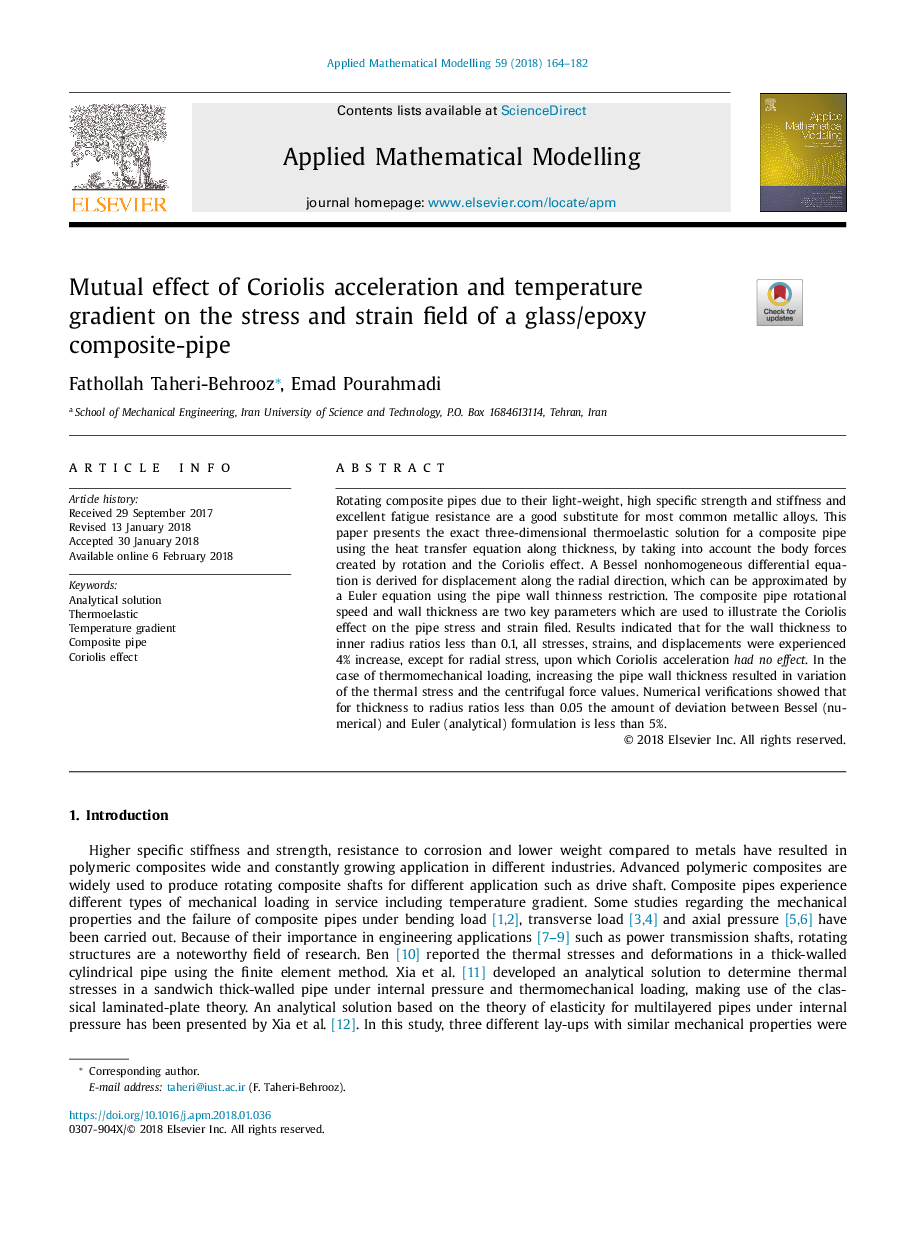| Article ID | Journal | Published Year | Pages | File Type |
|---|---|---|---|---|
| 8051559 | Applied Mathematical Modelling | 2018 | 19 Pages |
Abstract
Rotating composite pipes due to their light-weight, high specific strength and stiffness and excellent fatigue resistance are a good substitute for most common metallic alloys. This paper presents the exact three-dimensional thermoelastic solution for a composite pipe using the heat transfer equation along thickness, by taking into account the body forces created by rotation and the Coriolis effect. A Bessel nonhomogeneous differential equation is derived for displacement along the radial direction, which can be approximated by a Euler equation using the pipe wall thinness restriction. The composite pipe rotational speed and wall thickness are two key parameters which are used to illustrate the Coriolis effect on the pipe stress and strain filed. Results indicated that for the wall thickness to inner radius ratios less than 0.1, all stresses, strains, and displacements were experienced 4% increase, except for radial stress, upon which Coriolis acceleration had no effect. In the case of thermomechanical loading, increasing the pipe wall thickness resulted in variation of the thermal stress and the centrifugal force values. Numerical verifications showed that for thickness to radius ratios less than 0.05 the amount of deviation between Bessel (numerical) and Euler (analytical) formulation is less than 5%.
Related Topics
Physical Sciences and Engineering
Engineering
Computational Mechanics
Authors
Fathollah Taheri-Behrooz, Emad Pourahmadi,
